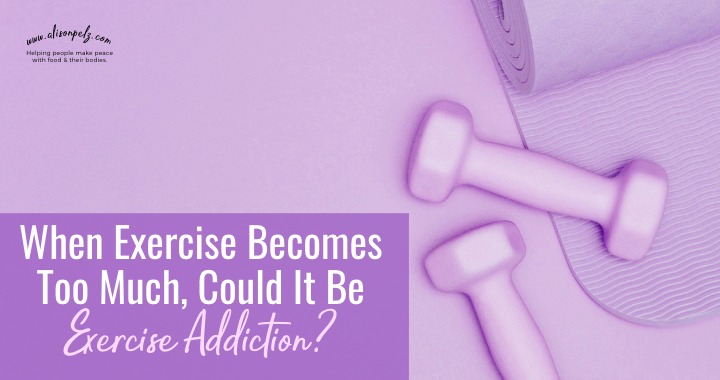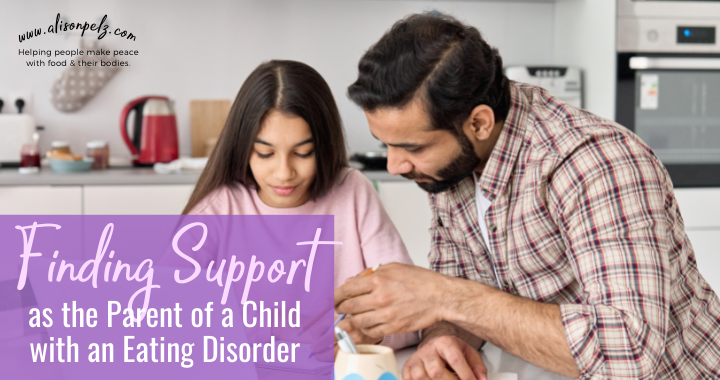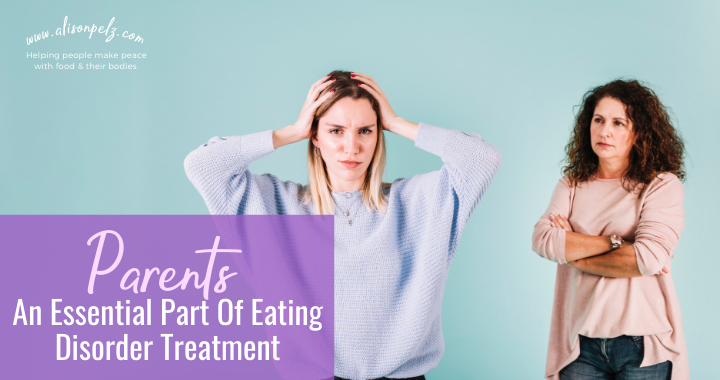Here are some possible signs of exercise addiction. Do you…
- spend a lot of mental energy thinking about exercise?
- think about when and how you are going to fit in?
- have excessive worry or guilt if you don’t exercise?
If any of those sound familiar to you, they could be signs that your exercise routine has become problematic.
Generally speaking, exercise is a good thing for you.
Exercise is not only fun, but it can improve physical and mental health and bolster self-esteem. Exercise can also be social. Participating in sports, whether recreationally or competitively, has numerous benefits like introducing you to other people, giving you space to connect with your body, and improving your concentration.
However, too much of a good thing, like exercise, can lead to major health issues.
Exercise becomes problematic when exercise negatively affects your physical health and interferes with other aspects of your life. If exercising gets in the way of your social life, your family life, work, or school, you might be overdoing it.
When exercise becomes so rigid that it is harmful to your well-being it has shifted from healthy to compulsive exercise. Some people refer to compulsive exercise as an exercise addiction, because the urge to exercise often feels very strong and it can be uncomfortable to ignore it.
Are you wondering if you’re addicted to exercise? Here are six signs that you’re dealing with compulsive exercise:
There is rigidity around your exercise routine.
You may find it hard to deviate from your exercise routine. The rigidity that often accompanies exercise addiction can include the time of day the exercise is done, what type of exercise, and for how long you exercise.
Exercise is often excessive.
You spend a lot of time exercising. Usually, the length of exercise increases over time. You may be spending much of your free time exercising or thinking about exercising.
Not exercising makes you feel guilty, depressed and/or anxious.
If you have to miss your regularly scheduled exercise it makes you have intense negative emotions. You may spend significant mental energy thinking about how to “make it up”.
Exercise interferes with your social life and relationships.
You may turn down social invitations because it interferes with your exercise routine. For some, this can lead to significant feelings of isolation. You may even lie or hide how much you exercise. Work or school obligations can suffer because so much time and energy is spent on exercise.
You exercise despite feeling sick or if you have an injury.
When you are sick or injured you exercise anyway. You feel afraid that you will lose ground on your fitness level or you won’t return to exercise if you take time away.
Exercise feels like a chore or an obligation.
Initially, exercise starts off moderately but can slowly get more extreme. After a while, exercise no longer feels like something you want to do, but something that you have to do.
We may all experience some of these signs of compulsive exercise from time to time. However, the tell-tale sign of compulsive exercise is the persistent and consistent thoughts of exercise. In addition to the constant thinking about exercise, you might also experience intensely negative feelings when you miss an exercise session.
Compulsive exercise isn’t just about the exercise itself, it’s also about the enormous amount of thought and effort that goes toward thinking about exercise. Besides the time spent exercising, there is a lot of mental energy that goes into thinking about when, and how to exercise, and after a while that can be very draining.
The connection between athletes and compulsive exercise
It probably comes as no surprise that athletes are at a higher risk for developing a compulsive relationship with exercise.
Studies show that about 3% of the general exercise population struggles with compulsive exercise. Athletes are far more likely to struggle with exercise addiction. As many as 14% of endurance athletes and up to as high as 34.8% of elite athletes struggle with compulsive exercise. Compulsive exercise might feel necessary to keep up with the demands of their sport, but it has detrimental effects on physical and mental health.
The connection between eating disorders and compulsive exercise
Athletes aren’t the only people who struggle with compulsive exercise. There is a strong connection between compulsive exercise and eating disorders. Research has shown that 39% to 48% of people with eating disorders engage in compulsive exercise.
Often compulsive exercise is used to “make up for eating mistakes” or binges. In the eye of the eating disorder, it can give the person with an eating disorder permission to eat. Exercise is used in efforts to obtain or maintain a certain body weight or physic.
You can’t tell by looking at someone if they compulsively exercise. People with all different body types compulsively exercise.
What are the consequences of exercise addiction?
There are several physical consequences of compulsive exercise. They include:
-
- Reduced bone density (osteopenia and osteoporosis)
-
- Loss of menstrual cycle
-
- Chronic muscle soreness, bone, and joint pain
-
- Overuse injuries such as stress fractures
In addition to the physical effects, compulsive exercise has a major effect on mental health. Compulsive exercise is associated with decreased overall life satisfaction, negative mood, low energy, and increased rates of depression and/or anxiety.
How can compulsive exercise be treated?
If you’re struggling with compulsive exercise, you’re not alone, and help is available. There are ways to treat compulsive exercise, or exercise addiction. Therapy is an important tool for treating compulsive exercise.
In therapy, you can explore some of the problematic thinking that leads to compulsive exercise. Therapy can also help you learn how to resist and reduce the urges to compulsively exercise. Finally, working with a therapist can help you improve your relationship with exercise in order to enjoy it with both your physical and mental health in mind.



